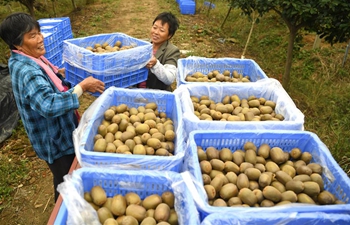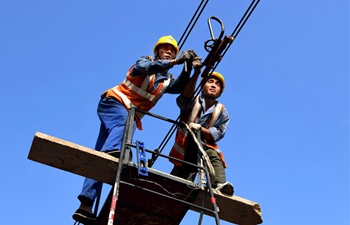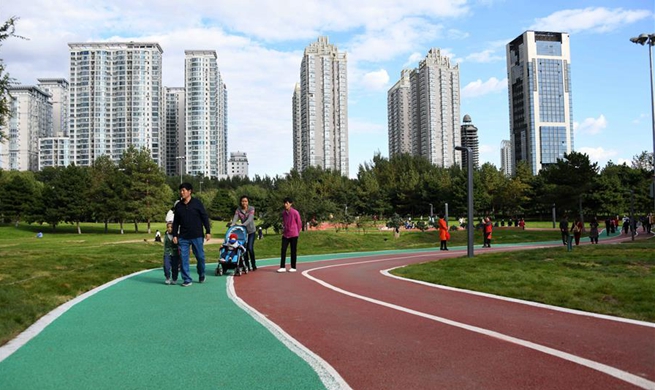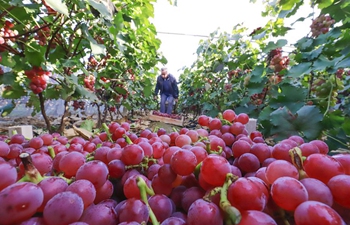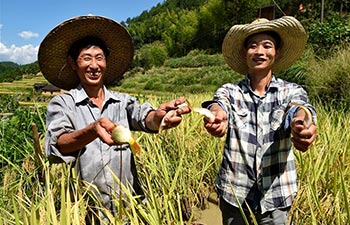NAIROBI, Sept. 25 (Xinhua) -- The East African Community (EAC) bloc is developing a regional Science, Technology and Innovation (STI) Policy to boost its competitiveness, officials said on Tuesday.
Gertrude Ngabirano, Executive Secretary of the East African Science and Technology Commission (EASTECO), told a media briefing in Nairobi that the draft policy will be submitted to the EASTECO Governing Board for adoption before consideration and approval by the EAC Council of Ministers of the six member states.
"We expect that the EAC Heads of State will endorse the STI policy in 2019, so as to create an enabling environment for increased investment in science, technology in order to boost competitiveness, support sustainable regional development and socio-economic transformation," Ngabirano said during a regional workshop to review and validate draft STI policy and draft Intellectual Property Rights Policy.
The EAC Intellectual Property Rights is expected to ensure that new products and innovations generated through research are protected from being stolen by third parties.
EAC partner states includes Kenya, Uganda, Tanzania, Rwanda, Burundi and South Sudan.
The EAC policy will be aligned to the African Union's Science, Technology and Innovation Strategy for Africa 2024.
Ngabirano said that once the regional STI policy is in place, it will guide the development of national science policies by the member states.
"It will also harmonize national science policies in order to enhance cooperation and avoid duplication in research activities," she added.
She noted that the policy will put the east African region on the road map of being globally competitive in terms of product development.
According to EASTECO, the EAC is performing poorly in the manufacturing sector due to lack of innovative products that can compete globally.
"So, the science policy will prioritize investments into identified sectors so that the region can develop products where it has a comparative advantage," she added.
The Executive Secretary said that one of the provisions of the regional policy will be to require member states set aside the equivalent of one percent of their gross domestic product (GDP) towards STI.
She observed that there is a positive correlation between amount of funds put in place for research and national development.
Moses Rugutt, the Director General of Kenya's National Commission for Science, Technology and Innovation (NACOSTI) said that compared to other East African nations, Kenya has made significant strides in theresearch sector.
Rugutt said that Kenya has already put in place a STI policy that stipulates that research funding must be equivalent of 2 percent of GDP.
Rugutt said that currently, the level of research funding is slightly less than 1 percent of GDP with most of government allocation being used for recurrent expenditure rather that actual research activities.
He observed that most of the research funding is contributed by foreign donors and therefore research might not be totally aligned to national priorities.
The director general said that the most advanced nations have achieved a research funding level of 4 percent of GDP.
He noted that once the regional STI is in place, it will promote collaboration in area of research in the east African region.
He said that most of the EAC states are unable to allocate adequate funding for research because they are small developing economies.
